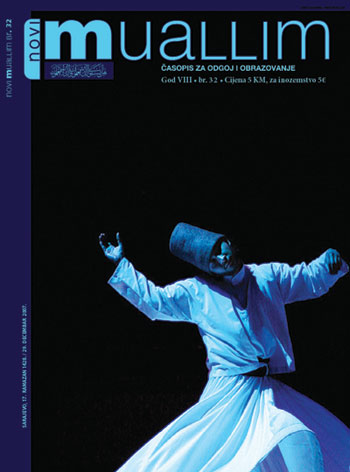DISCIPLINE AND THE CONTROL IN SCHOOLS IN THE TEACHINGS OF MICHEL FOUCAULT
DOI:
https://doi.org/10.26340/muallim.v8i32.997Abstract
We can summarize and say that Foucault rejjects classical sociological interpretations of power, according to which there is always one central power in each society that is vested in sovereignty of a one person or a group of people. In modern societies, according to Foucault such power does not exist. Power is found as constantly vibrating rellation of powers, relation that is in a microphysical form stretched throughout an entire society. Foucauult’s conception of knowledge is in accord with this: knowledge is a power over the others, it is a power of defining the others. Knowledge and the power are mutually interdependent. Knowledge no longer represents freedom, but it is a way of discipline, reggulation and control. In postmonarchic societies, in era of modernity, society is becoming subjective power, that is maintained through the method of observation. Power is exercised in the name of the society, and not in the name of the absolute ruler. Such societies are named by Foucault as disciplinnary societies. Discipline is a corporal submission. What happens is a transmission of power from monarchic to a disciplinary power that is perfectly embodied in Benthams outlines of Panopticon. Pannopthicism is a projection of modern observative power. It is complementary to the growth of the population that is in demand of new technologiees of administration and control in order to solve the problems such as public health, hygiene, living conditions, life expectancy and sexuality. Modern societies exercise control and discipline over their population using the methods and demands of science of human such as : medicine, psychiatry, psychology, criminology and sociology. These dissciplines have established certain norms that are reproduced and legitimized through the practice of teachers, social workers,doctors, judges, policemen and directors. Observation is exercised in every insstitution: the very architecture of schools, factories, army barracks and prisons confirm this. Prisons resemble schools, schools resemble factories, hosspitals and vice versa. Educational institutions are nothing but an object of a constatnt observation and latent punishment.
Downloads
Published
How to Cite
Issue
Section
License
Naknada:
a. Časopis ne naplaćuje naknadu za obradu članaka (APC) i naknadu za podnošenje članaka.
Autori koji objavljuju u ovom časopisu pristaju na sljedeće uvijete:
- Autori zadržavaju autorska prava i pružaju časopisu pravo prvog objavljivanja, pri čemu će rad jednu godinu po objavljivanju biti podložan licenci Creative Commons imenovanje koja omogućuje drugima da dijele rad uz uvijet navođenja autorstva i izvornog objavljivanja u ovom časopisu.
- Autori mogu izraditi zasebne, ugovorne aranžmane za ne-ekskluzivnu distribuciju rada objavljenog u časopisu (npr. postavljanje u institucionalni repozitorij ili objavljivanje u knjizi), uz navođenje da je rad izvorno objavljen u ovom časopisu.


